The 2019 Excellence in Road Safety Awards winners
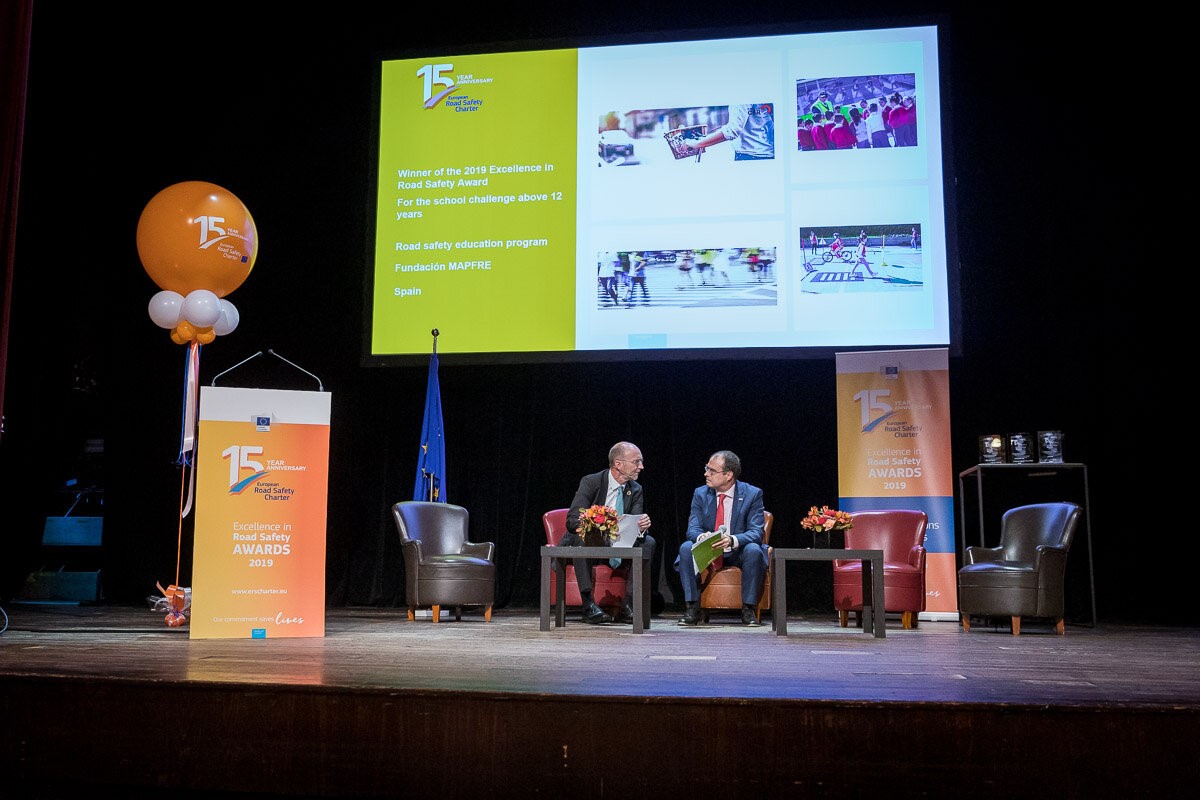
date: 20/11/2019
Automodus app, the Netherlands, by Interpolis (Large business category)
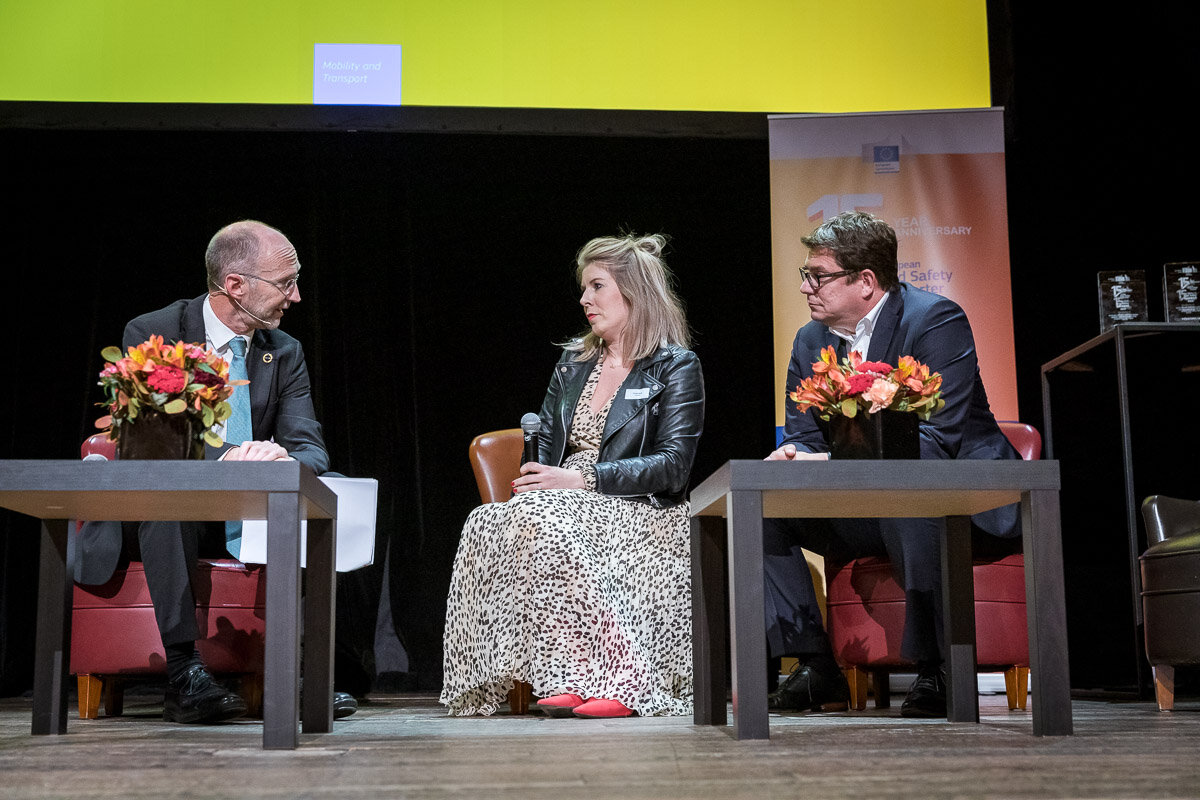 The Automodus app was created by Dutch insurance company Interpolis to eliminate one of the main contributors to accidents – driver distraction. It blocks all incoming and outgoing calls and messages while the user is driving.
The Automodus app was created by Dutch insurance company Interpolis to eliminate one of the main contributors to accidents – driver distraction. It blocks all incoming and outgoing calls and messages while the user is driving.
For every 100 km driven, Interpolis donates EUR 1 to a fund for road safety initiatives in the Netherlands. Yvette Melis, business change manager at Interpolis, said other countries like Finland and Sweden have already shown interest in the app. She said drivers that use the app have 20 % fewer accident claims than clients that do not.
Drink driving awareness campaign, Portugal, by InOutCister LDA (SME category)
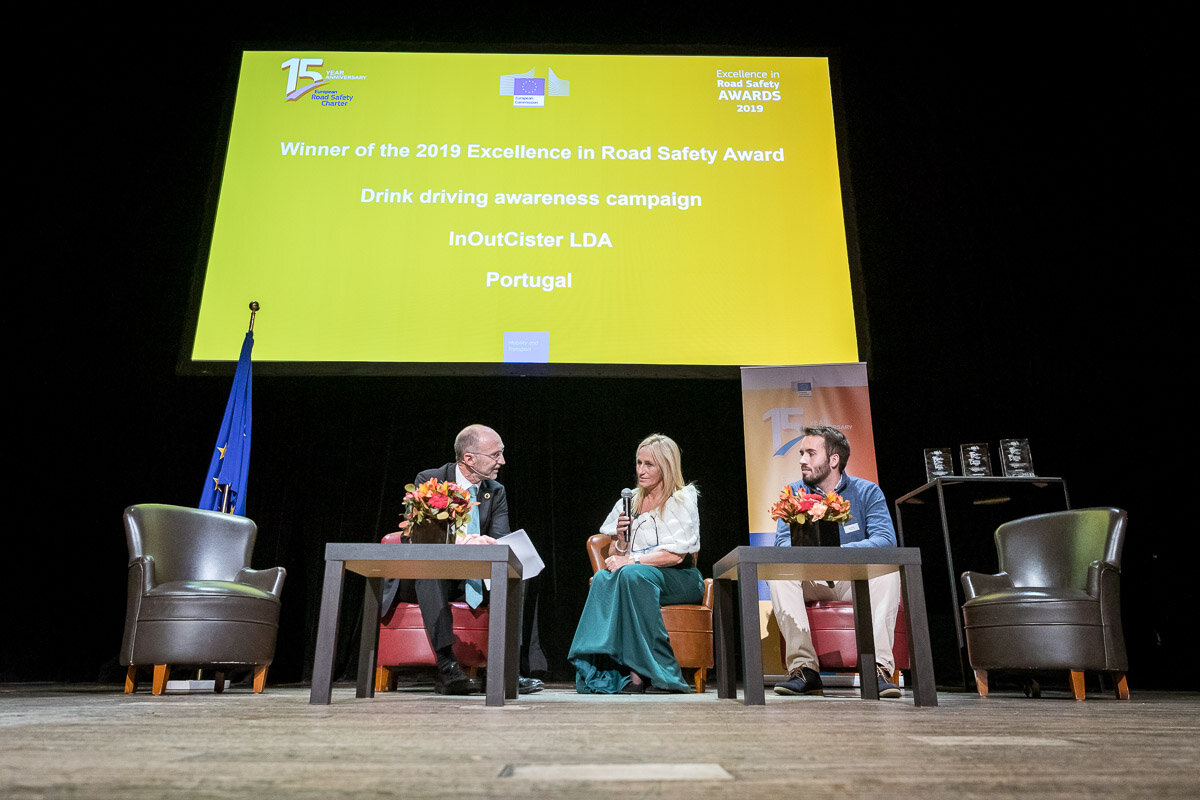 This project makes students aware of the dangers of drinking and driving. Volunteers attend student parties and spread the message that drinking and driving are dangerous. Surveys are conducted during and after the party to determine if students remember doing the survey, and whether they got behind the wheel of a car. Other project activities include breathalyser testing and handing out awareness-raising information and gifts.
This project makes students aware of the dangers of drinking and driving. Volunteers attend student parties and spread the message that drinking and driving are dangerous. Surveys are conducted during and after the party to determine if students remember doing the survey, and whether they got behind the wheel of a car. Other project activities include breathalyser testing and handing out awareness-raising information and gifts.
‘We are there to make them understand that there is a time to stop,’ said Fatima Pereira da Silva, director and mentor at InOutCister LDA, a consultancy company that specialises in traffic psychology. Speaking at the award ceremony on 9 October she said it is better for young adults to hear the message from their peers. The project has been running for seven years.
Road Safety Observatory in Silly, Belgium (Authorities category)
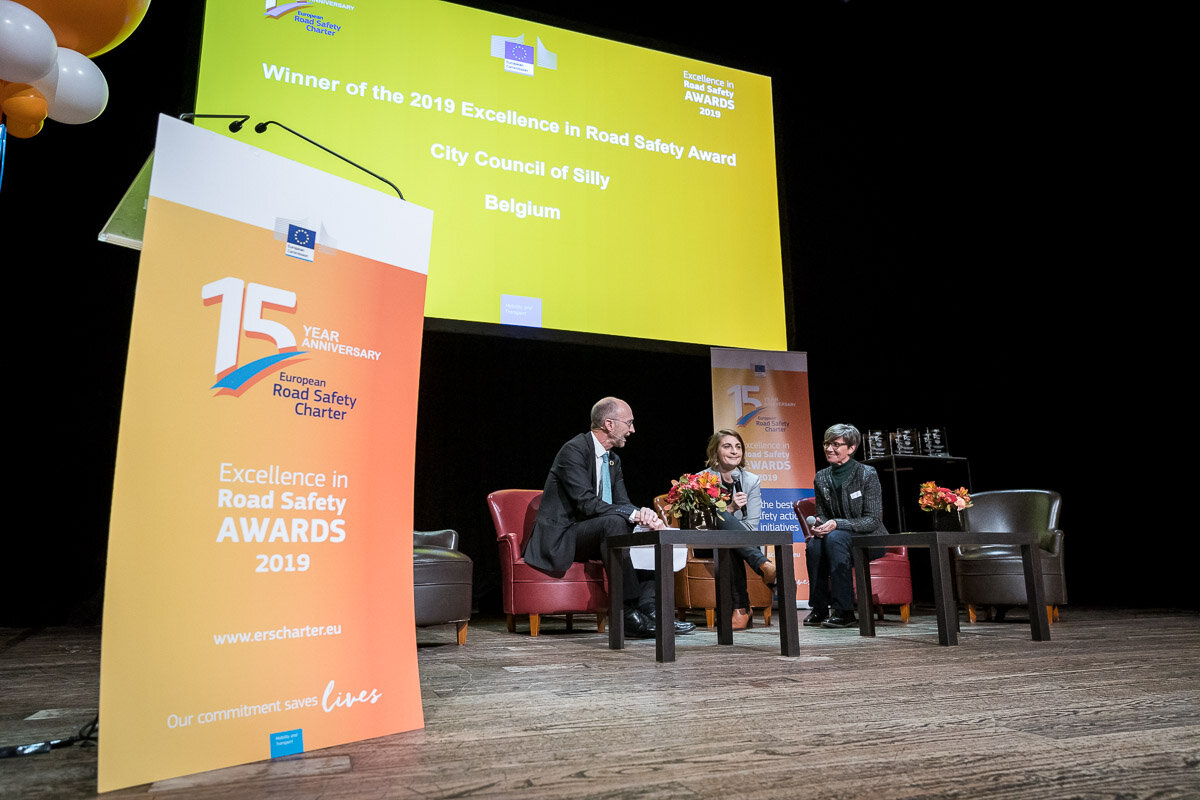 The municipality of Silly, a grouping of eight villages, established a Road Safety Observatory 20 years ago to improve road safety in the area.
The municipality of Silly, a grouping of eight villages, established a Road Safety Observatory 20 years ago to improve road safety in the area.
The Observatory consists of 12 members, including municipal councillors, police officers, and residents. Residents can get in touch with them to highlight problems, such as speeding in their street, and then solutions are found.
Many people in the town cycle to the local train station to get to school or work. Every year, the Observatory organises a night bicycle ride to promote good road safety practices, especially to children, such as the importance of being visible when on two wheels.
The Observatory is an effective example of how administrators, authorities, and residents work together to make their roads safer.
Quality label for motorcyclist training, by the Association of European Motorcycle Constructors (ACEM), (Voluntary commitments category)
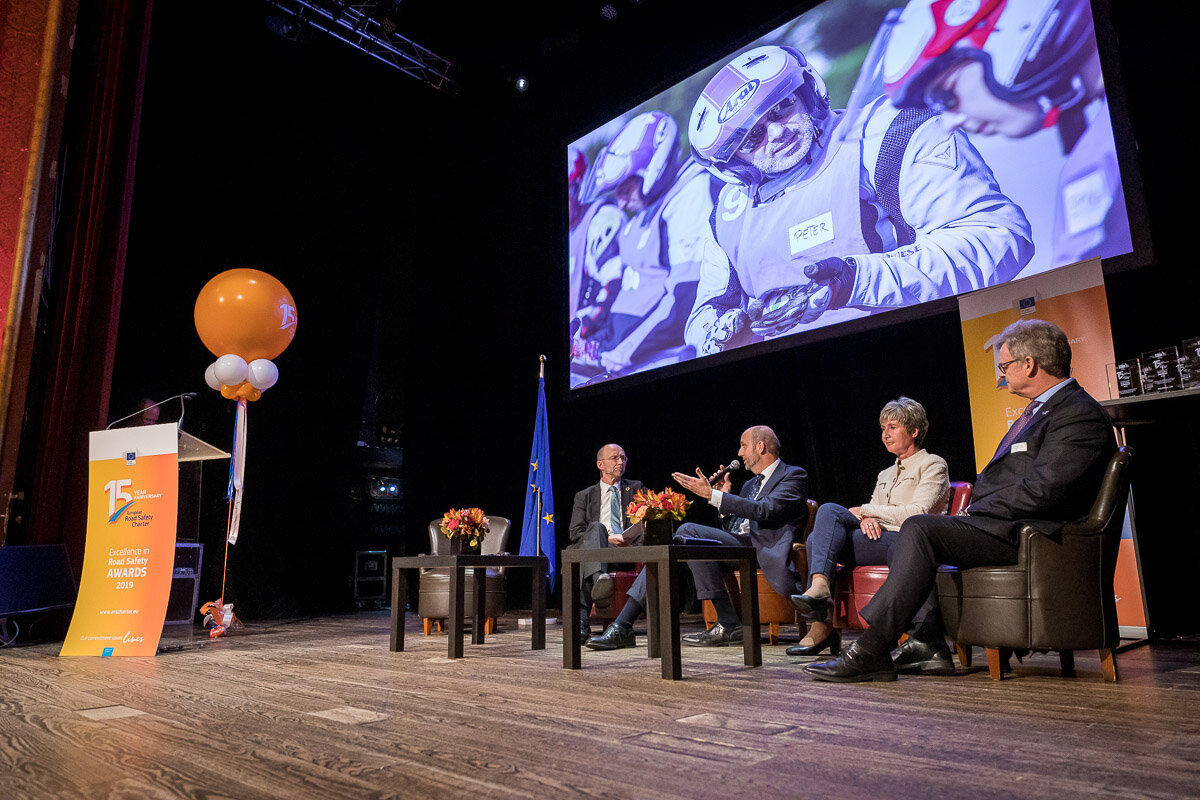 Under this project, a voluntary certification scheme was established for post-licence motorcycle safety training courses. Motorcycle manufacturers or driving schools who offer such training can submit their courses for certification. This helps riders identify the highest quality safety training courses in their country.
Under this project, a voluntary certification scheme was established for post-licence motorcycle safety training courses. Motorcycle manufacturers or driving schools who offer such training can submit their courses for certification. This helps riders identify the highest quality safety training courses in their country.
The German Road Safety Council, the Association of European Motorcycle Constructors, and the International Motorcyling Federation launched the initiative in 2016. Another goal is to stimulate healthy competition between training providers. In the past three years, 29 programmes have been certified in several countries.
The aim is to have at least one certified training per EU country. ACEM secretary general Antonio Perlot said that given the high percentage of motorbike-related accidents, riders need to be given the chance to improve their skills. ACEM was one of the first signatories to the European Road Safety Charter.
Schools challenge
Be smart when in traffic, Romania, by the Şcoala Generală Tompa Laszlo, Romania
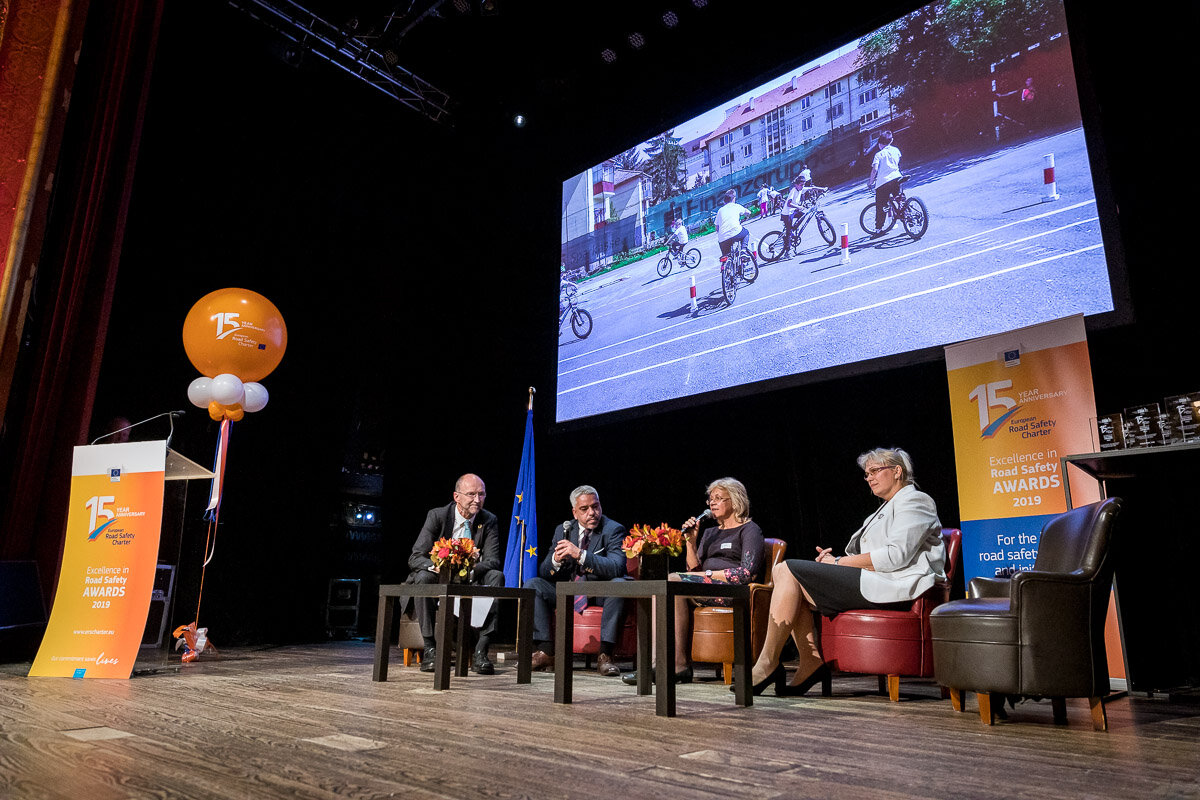 The school, in Odorheiu Secuiesc, about 300 km north of Bucharest, received this award for teaching primary school children about road safety. Teachers Ildicó Imre and Imola Péterfi Antónia said they organise afterschool courses and biking classes for children, where they are taught the rules of traffic and the importance of being aware while commuting. Local police officers contribute to the activities.
The school, in Odorheiu Secuiesc, about 300 km north of Bucharest, received this award for teaching primary school children about road safety. Teachers Ildicó Imre and Imola Péterfi Antónia said they organise afterschool courses and biking classes for children, where they are taught the rules of traffic and the importance of being aware while commuting. Local police officers contribute to the activities.
Road safety days, theoretical tests and practical lessons form part of the lessons. When the initiative began nearly 20 years ago, only a few children were interested. Currently two primary school classes totalling 60 children take part.
It is a voluntary initiative for both teachers and children. Efforts are now being made to extend the lessons to secondary school children. ‘Road safety for children is a vocation. Road safety education for kids should be introduced into the curriculum,’ Imre said.
Road safety education programme, Spain, by Fundación Mapfre
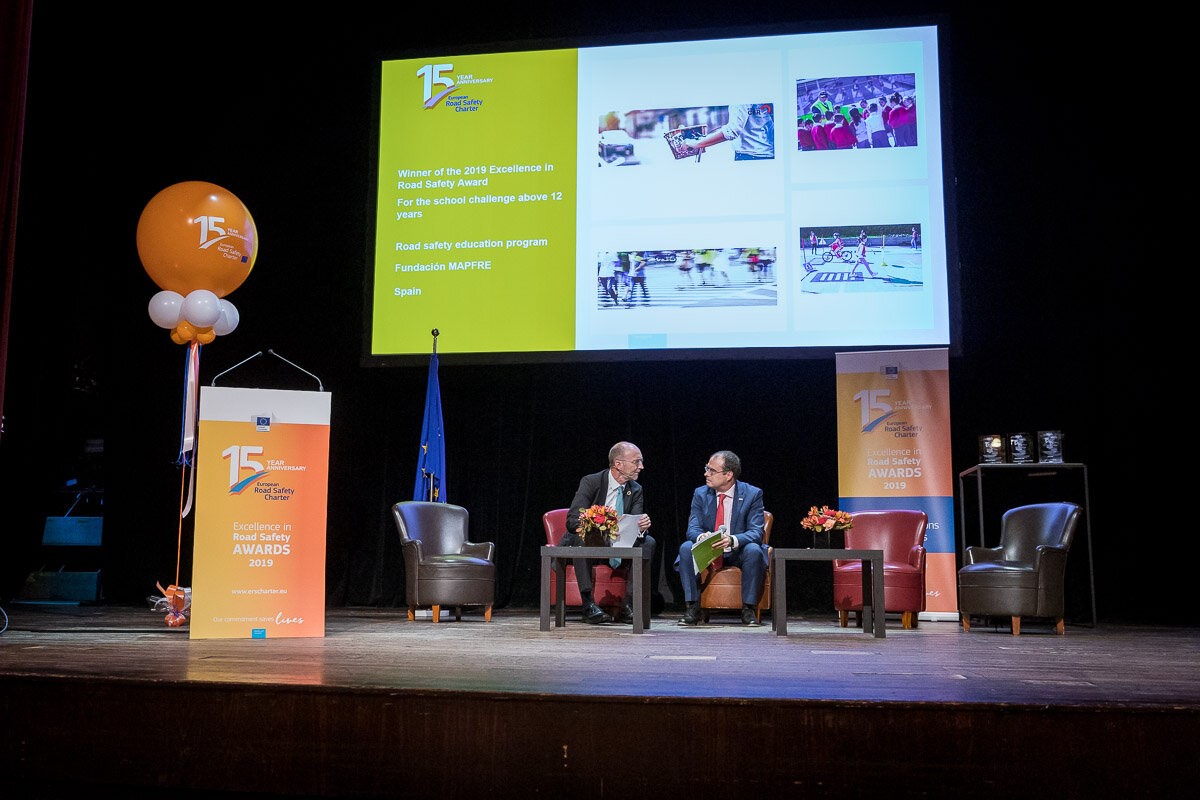 This comprehensive international road safety programme combines theoretical and practical training on road safety and, in parallel with this, education about healthy lifestyles.
This comprehensive international road safety programme combines theoretical and practical training on road safety and, in parallel with this, education about healthy lifestyles.
The programme began in 1995 and now does work in 25 countries, including Malta, Turkey and Germany, and Latin America. It reaches an estimated 3 million children, director of prevention and road safety Jesus Monclus Gonzalez said at the awards.
The project uses mobile trucks, booklets, apps, virtual reality tools, and materials for teachers to spread the message about road safety, injury and accident prevention. A total of 12 million print copies of the educational materials have been produced.
‘Our aim is to change things, to make a difference, and to teach children that we should not take excessive risks regarding our health, and in traffic,’ Gonzalez said.
